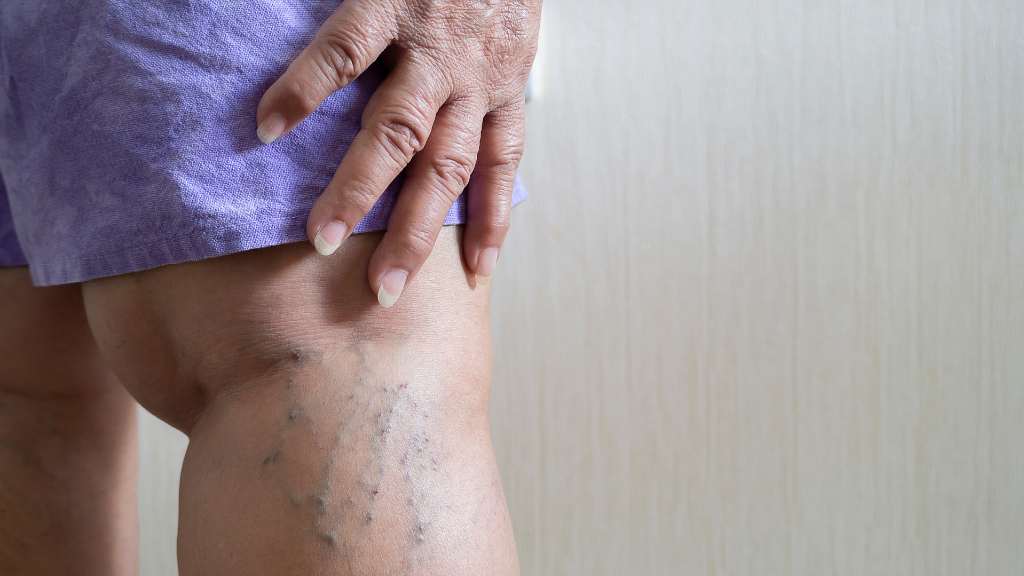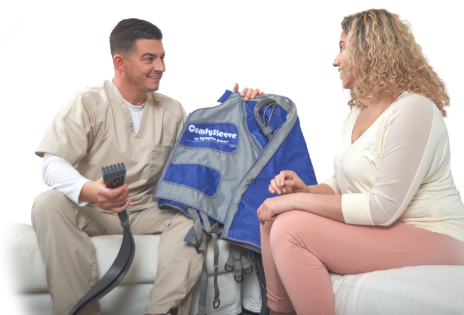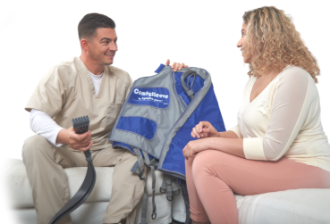Sabrina Steward, 23, of Quincy, IL, has had more than 50 surgeries related to her spina bifida. In 2013, she was in the process of being evaluated for another tethered spinal cord surgery when she had a shunt malfunction, was placed on a ventilator and spent 20 days in a coma.
As a result of not being able to get surgery on her tethered cord, she lost her ability to walk. After several years, physical therapy was successful in re-establishing a connection between her brain and legs. That was great. But when she started walking, her legs became dangerously swollen.
Recommendations for lower extremity edema typically include only limb elevation and use of compression garments.* She tried compression socks, but they didn’t alleviate the swelling. Her vascular surgeon then prescribed a state-of-the-art compression therapy product or pneumatic compressor. The prescription was for the Lympha Press®, which squeezes out of her legs the fluid that makes them swollen.
That’s when Sabrina’s clinical problems were joined by insurance woes. She was told that Medicaid of Illinois didn’t cover the Lympha Press, which costs nearly $2,000, a price tag beyond Sabrina’s ability to pay.
But Sabrina was not to be denied. In April, she solicited the help of the Illinois Spina Bifida Association (ISBA). Its executive director Matt Larsen listened to Sabrina’s story and set out to help. After a half dozen phone calls to medical suppliers in Illinois, all of whom repeated what Sabrina had been told that Lympha Press was not approved for Medicaid reimbursement, Matt reached out to the US distributor of Lympha Press, Patriot Medical, in West Chester, PA. In turn, it contacted the customer service department one of its associates, Medical Solutions Supplier (MSS), also outside Philadelphia.
“That’s when our team went to work on Sabrina’s behalf,” says Brenda J. Viola, MSS’s director of marketing and public relations. “Our goal is to obtain approval through patient’s insurance by becoming their advocates and fully understanding their clinical case. In reviewing Sabrina’s case, we learned that what her doctor had been told about no insurance coverage for the pump was accurate in terms of spina bifida not being a covered diagnosis for the pump. But the diagnosis of lymphedema is. We knew Sabrina needed the pump or her surgeon wouldn’t have prescribed it.”
The result: MSS gave Matt the necessary Illinois Medicaid codes and supplier information for the vascular surgeon to get Sabrina the state-of-the-art medical equipment.
When Sabrina got her Lympha Press in May, “it took the fluid right out my legs,” she says. “My legs now are skinnier. I can wear clothes and shoes that I couldn’t with my swollen legs. I’m grateful to all the people who helped me get the Lympha Press.”
Adds Sabrina: “The moral of this story is to never give up fighting for what you need. Learn what you’re entitled to receive. And remember that the ISBA is there to help.”
“It’s always important to work with durable medical equipment companies that ask questions on patients’ behalf. That’s what patient advocacy is all about,” advises Viola.
*LYMPH Link Article Reprint, Volume 17, No. 1 January~March 2005







